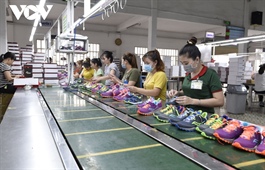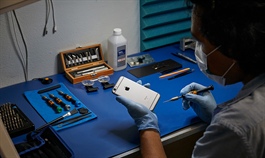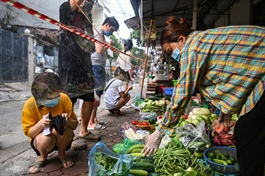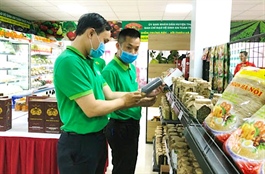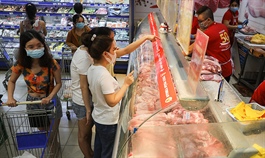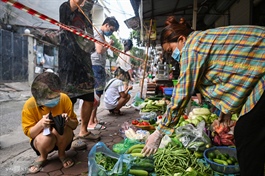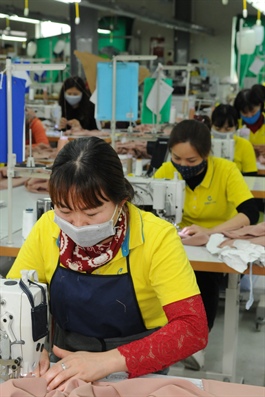'Essential goods' confusion causing problems with supplies, changes needed MoIT
'Essential goods' confusion causing problems with supplies, changes needed MoIT
Light bulbs are not something Do Thu Hang, 40, usually stores at home. There is a hardware store in front of her house on Doi Can Street, in Ha Noi, so she has never really had to. However, under Directive 16 the hardware store is now closed. As a result, when the bulk in her kitchen blew she didn’t know what to do.

The store which sells hardware in front of her house has been closed since July 24. It was not on the list of essential items under Directive 16 that the city is implementing to prevent the spread of COVID-19.
Fortunately, a kind neighbour offered to give Hang a bulb he had spare and installed it in her kitchen.
To Hang, who has to take care of her four-month-old baby while her husband is away working in a factory in Bac Giang province, everything is essential.
“In this situation, who needs to buy non-essential items? It is not the time for anyone to be in the mood of shopping for fun,” Hang told Viet Nam News.
She added the pandemic hurt the finances of most local people and they had no intention of buying things that were not ‘essential’.
About 1,700 km away from Hang, the story becomes even more complicated. A vehicle carrying sanitary pads and diapers was blocked in HCM City, authorities determining its cargo to be 'non-essential' items.
Not being listed as necessities, Diana Unicharm Joint Stock Company’s products were blocked by functional forces when being transported to stores and retail points in the city on July 28.
A representative of the firm said if the blockage and disruption of the supply chain are not fixed, those items will soon be in short supply in the biggest market in the country, affecting the health, safety and hygiene of residents.
Sanitary pads are used by 30 million Vietnamese women during their menstrual cycle and they need, on average, 16 sanitary pads each. There are about 3 million babies aged between 0 and 2 that need diapers demanding an average of 90 to 120 per month per baby.
This is not the only incidence of inconsistencies in the interpretation of ‘essential goods’ and it makes it difficult for businesses to transport their products to consumers.
The Ministry of Industry and Trade (MoIT) on July 27, reported to the Prime Minister, that transport congestion is due to the inconsistent understanding of essential goods by localities.
In the official dispatch, MoIT deputy minister of Industry and Trade Do Thang Hai stated that inconsistencies in the interpretation of the rules had been registered and that this was causing congestion in supply chains.
MoIT asked the PM to approve its latest proposal, which removes the list of essential goods and applies a list of "prohibited goods". If the proposal is approved, businesses will only need to refer to the list of prohibited goods in accordance with the law and circular all other goods in the market across the country.
While waiting for the proposal to be approved, a representative of MoIT told Viet Nam News it had asked all the local departments in cities and provinces to allow the circulation of goods in four groups including food, drinking water, meat and meat products, cereals, aquatic products, vegetables and fruits, raw materials for production including iron and steel, fertilizer, herbicides, animal feed, fuels and energy like petrol, liquefied petroleum gas, coal and other commodities that serve local production and needs.








